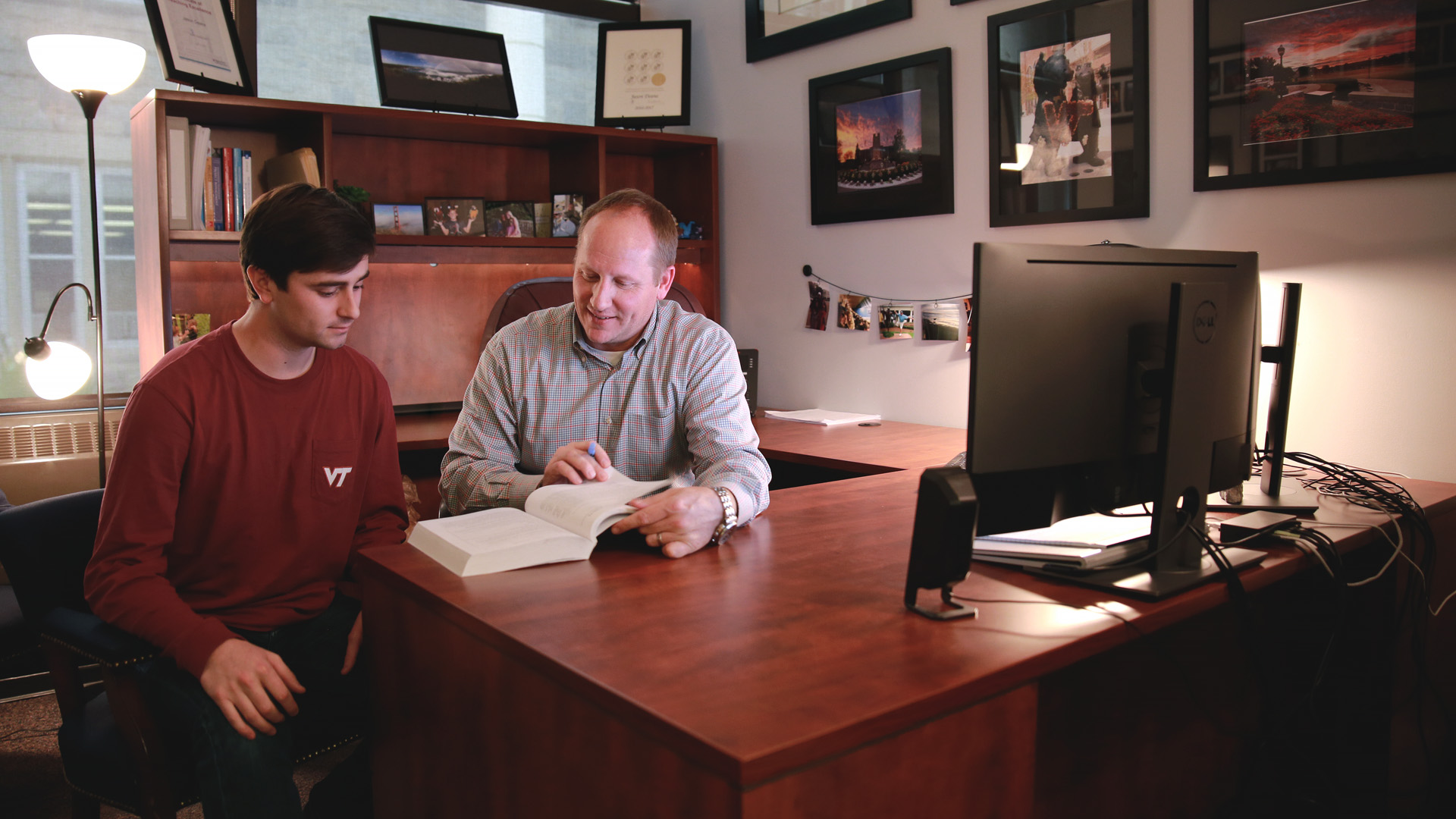Jason Deane, associate professor of business information technology in the Pamplin College of Business, can be considered a winter session super faculty.
Since first launched in 2014, Deane has consecutively taught in winter session with approximately 400-450 students benefitting from his operations and supply chain management course during this time. This course teaches students how to analyze processes, ensure quality, create value, and manage the flow of information, products and services across a network of customers, enterprises, and supply chain partners.
Deane’s current research interests are in the areas of artificial intelligence, computer aided decision support systems, information system security, supply chain management and information retrieval.
“This course works well during the winter session because the nature of the material lends itself very well to the compressed schedule and the online environment,” shares Deane. “Over the years I have been able to, with the help of several colleagues, develop a good mixture of pedagogical techniques that afford the students a good opportunity to digest such a wide breadth of material in a short period of time.”

Deane has gathered that many students find the compressed nature to be extremely appealing. “Unlike the fall and spring semesters, the winter term commonly has the students immersed in the subject matter every day for the three-week period,” notes Deane. “For many, this improves the efficiency with which they are able to master the material and thus increases their enjoyment of the process.”
Kenny Moura, a junior majoring in management, said the class exceeded his expectations as it was his first time taking a course during winter session.
“Professor Deane managed the class very well with setting due dates and opening work to allow for the most freedom in working through the class.”
Moura said the online format also allowed him time to spend with his family during the holidays.

Deane further adds, “The material covered represents a good mix of quantitative and qualitative concepts, but is not extremely abstract. As such, the students learning experience is not hindered by the lack of face-to-face group discussion.”
When asked to share some highlights of the course, Deane admits with a grin that it is hard to single out a particular subject matter with covering 14 chapters of content within the three weeks. “However, with respect to the teaching approaches, I really like the discussions/forums, as it is truly a highlight for me. I learn so many interesting things about the students and their unique personalities and dreams through our online discussions.”
